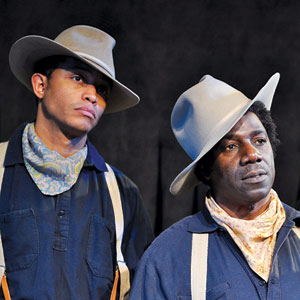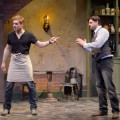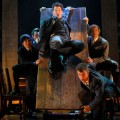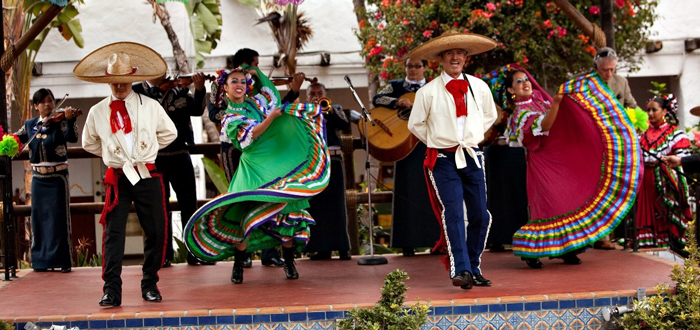The Brutal Philippine-American War of 1899–1902 is a conveniently forgotten chapter of U.S. history, and the role of segregated black Army regiments—Buffalo Soldiers—is known even less. However, a new play from writer Jeannie Barroga and performance artist Alleluia Panis plucks these men from the dust bin of history and drops them at centerstage, where they belong. This play is Buffalo’ed, a colorful, everything-but-the-kitchen-sink experience now running at San Jose Stage Company through April 29.
When the United States, having annexed the Philippines, moves to crush any native resistance, it puts the Army’s black soldiers in an odd position—the most downtrodden of Americans, they are now being used to oppress others. The austere Linc (Adrian Roberts, in excellent form) insists that they keep quiet and follow orders if they want to gain the white man’s respect, even as letters from his wife (Elizabeth Carter) and clashes with a headstrong comrade (Daniel Redmond) pose tough questions about the war.
David Fagen, who was a real Buffalo Soldier and something of a legend in his day, is lightheartedly yet powerfully portrayed by Clinton Derricks-Carroll. The play also features an arrogant white captain (David Arrow) who spews bad Kiplingesque poetry while his subordinates dig latrines and dodge bullets, and a group of Filipino insurrectos, including noblewoman Doña Luisa (Amielynn Abellera), who use dance lessons as a cover for practicing their escrima fighting style.
Buffalo’ed is, in essence, a history lesson, and this shouldn’t be seen as a bad thing. There are times when it looks like a Ken Burns documentary, complete with sepia-toned background images, but then the escrima dancers emerge, tumbling and leaping through the air while wielding sticks and knives. History, the play seems to be saying, is a living, breathing thing. And as the play makes clear through pointed references to the newly acquired territory of Guantanamo Bay and water torture employed on Filipinos by the U.S. Army, we are still living with what we started more than a century ago.
These are stories that need to be told with honesty and courage, and Buffalo’ed does just that, and if it gets even a handful of people discussing the issues it raises—American racism and imperialism, along with the hope of solidarity across racial and national lines—it will have been a worthwhile endeavor.

 Best Bites: Spicy Food!
Best Bites: Spicy Food!  Mexicanismo at San Jose Museum of Art
Mexicanismo at San Jose Museum of Art 









